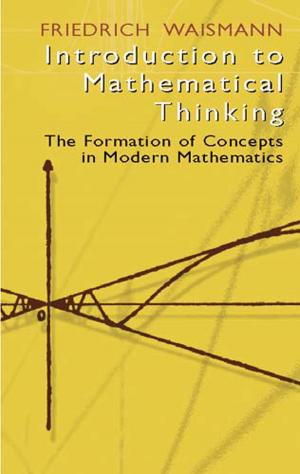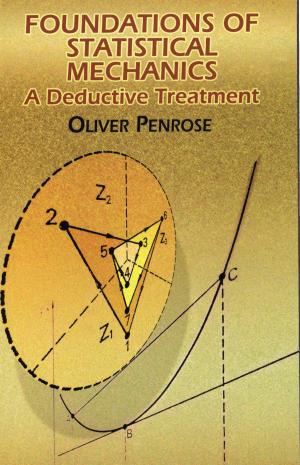| Author: | John Venn | ISBN: | 9780486161044 |
| Publisher: | Dover Publications | Publication: | May 23, 2013 |
| Imprint: | Dover Publications | Language: | English |
| Author: | John Venn |
| ISBN: | 9780486161044 |
| Publisher: | Dover Publications |
| Publication: | May 23, 2013 |
| Imprint: | Dover Publications |
| Language: | English |
No mathematical background is necessary to appreciate this classic of probability theory, which remains unsurpassed in its clarity, readability, and sheer charm. Its author, British logician John Venn (1834-1923), popularized the famous Venn Diagrams that are commonly used for teaching elementary mathematics. In The Logic of Chance, he employs the same directness that makes his diagrams so effective.
The three-part treatment commences with an overview of the physical foundations of the science of probability, including surveys of the arrangement and formation of the series of probability; the origin or process of causation of the series; how to discover and prove the series; and the conception of randomness. The second part examines the logical superstructure on the basis of physical foundations, encompassing the measurement of belief; the rules of inference in probability; the rule of succession; induction; chance, causation, and design; material and formal logic; modality; and fallacies. The final section explores various applications of the theory of probability, including such intriguing aspects as insurance and gambling, the credibility of extraordinary stories, and approximating the truth by means of the theory of averages.
No mathematical background is necessary to appreciate this classic of probability theory, which remains unsurpassed in its clarity, readability, and sheer charm. Its author, British logician John Venn (1834-1923), popularized the famous Venn Diagrams that are commonly used for teaching elementary mathematics. In The Logic of Chance, he employs the same directness that makes his diagrams so effective.
The three-part treatment commences with an overview of the physical foundations of the science of probability, including surveys of the arrangement and formation of the series of probability; the origin or process of causation of the series; how to discover and prove the series; and the conception of randomness. The second part examines the logical superstructure on the basis of physical foundations, encompassing the measurement of belief; the rules of inference in probability; the rule of succession; induction; chance, causation, and design; material and formal logic; modality; and fallacies. The final section explores various applications of the theory of probability, including such intriguing aspects as insurance and gambling, the credibility of extraordinary stories, and approximating the truth by means of the theory of averages.















